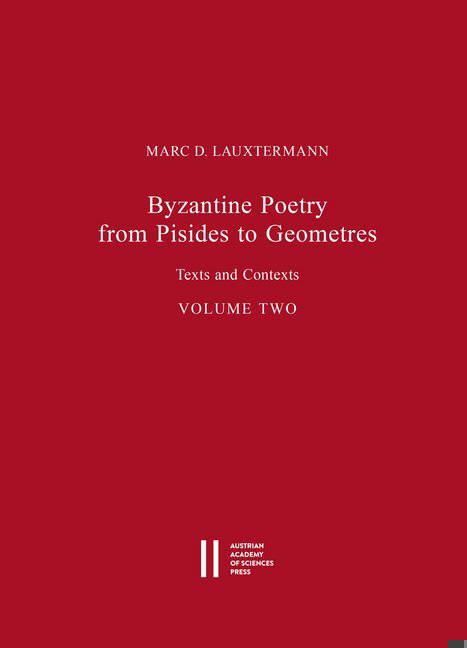
- Afhalen na 1 uur in een winkel met voorraad
- Gratis thuislevering in België vanaf € 30
- Ruim aanbod met 7 miljoen producten
- Afhalen na 1 uur in een winkel met voorraad
- Gratis thuislevering in België vanaf € 30
- Ruim aanbod met 7 miljoen producten
Zoeken
€ 111,95
+ 223 punten
Omschrijving
This second and last volume of Byzantine Poetry from Pisides to Geometres offers a comprehensive overview of the main poetic genres between c. 600 and 1000, combining textual analysis and contextual interpretation. The first three chapters discuss encomium, ekphrasis and ethopoiia - the three archigenres or discursive modes that, together with narration, inform the whole of Byzantine literature. The next two deal with specific rhetorical genres: monody and epithalamium. This then is followed by an account of satire, diatribe and religious poetry, all three of which tend to be rather personal: they are all forms of self-representation. The next two chapters take us to school: the first deals with didactic poetry; the second with metaphrasis, a school exercise. The last chapter treats oracles, riddles and dream keys. The book is concluded with an 'appendix metrica', which offers a detailed and thorough account of Byzantine metrics. Given that the first volume, which appeared in 2003, has become essential reading for all those interested in Byzantine literature, the second volume is likely to set the agenda for further research.
Specificaties
Betrokkenen
- Auteur(s):
- Uitgeverij:
Inhoud
- Aantal bladzijden:
- 431
- Taal:
- Engels
- Reeks:
Eigenschappen
- Productcode (EAN):
- 9783700181262
- Verschijningsdatum:
- 28/01/2019
- Uitvoering:
- Paperback
- Formaat:
- Trade paperback (VS)
- Afmetingen:
- 172 mm x 243 mm
- Gewicht:
- 820 g

Alleen bij Standaard Boekhandel
+ 223 punten op je klantenkaart van Standaard Boekhandel
Beoordelingen
We publiceren alleen reviews die voldoen aan de voorwaarden voor reviews. Bekijk onze voorwaarden voor reviews.








